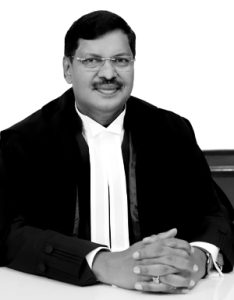Justice BR Gavai says affirmative action, inclusion under Constitution led to his quick elevation to Supreme Court

Supreme Court judge Justice BR Gavai has said that due to the mandate of affirmative action and inclusion of the Indian Constitution, he was able to serve at the highest judicial office of the country.
He said that affirmative action ensured persons from marginalised communities were able to reach top government positions in India.
Highlighting his own example, he said that his elevation to the Supreme Court was advanced by two years since the Collegium wanted to have judges from the Dalit community on the Bench.
As per the Apex Court judge, if not for giving representation to the Scheduled Castes, he would have been elevated maybe two years later.
A well-established former lawyer, Justice Gavai said that this was one of the factors, which helped in his elevation as a judge at the Bombay High Court, from where he was later elevated to the Apex Court.
Attending an event hosted by the New York City Bar Association (NYCB), Justice Gavai said that when he was appointed as a judge at the Bombay High Court in 2003, he was a leading lawyer and there was no Dalit judge at the High Court then.
The NYCB is a voluntary organisation of law students and advocates.
The event saw a cross-cultural discussion on the role of the judiciary in India and the United States of America (USA) in upholding the rule of law and advancing individual rights.
The conversation involving Justice Gavai and Judge Joseph Zayas, the first Latino judge to serve as Chief Administrative Judge in New York State, was moderated by Justice Ushir Pandit-Durant, the first South Asian judge elected to New York State Supreme Court in Queens as well as the first South Asian woman judge elected in New York State.
Justice Gavai shared with the audience his humble origins of growing up in a slum area and going to a municipal school.
When asked about the duties of the Chief Justice of India (CJI), Justice Gavai responded that the CJI provides ‘equal leadership to the entire judiciary’ in India and maintains its independence.
He opined that while fair criticism of judgments on social media was fine, unwarranted criticism of judges through doctored clips was an area of concern. He gave the example of how a doctored clip of CJI Chandrachud adjusting his chair was recently circulated.
On the most satisfying moment in his career, Justice Gavai shared how he as a lawyer once saved the livelihood of slum-dwellers in Nagpur by obtaining an urgent stay from the Supreme Court.
from India Legal https://ift.tt/XlUwDfR